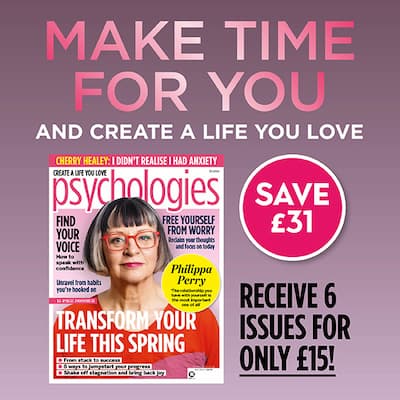“Falling in love with Anger: How you can too”
Catherine Rowley, Ollie Coach, explores how you can fall in love with Anger, the benefits of being Angry and gives you tips on how to manage Angry.

What on earth am I on about? Surely anger is not good, we don’t want angry, how can anger be or do any good?
Maybe you are like me, or maybe you have always embraced your angry emotion when it came along for you. If the latter I salute you, and hope that the following enables you to understand the reasons why you may have already been able to embrace your angry emotion.
We often witness Anger’s destructive force – leaving pain and upset in its wake – like two electricity fuses igniting into an explosive mess – loud noise, shouting, verbal fighting, sometimes physical fighting. We often do what we can to avoid it – I know I often have. I’ve stepped over it, side swiped it, gone round it and even just buried it.
That is until recently. Below I share the how you to can embrace Anger, see it in a new light. It really was a game changer for me.
The benefits of Anger and tips you can use to help manage it.
How to notice Anger:
Anger sits in my toes – I’ve recognised that my toes start to wiggle – often nobody else will notice but within my shoes my toes are moving, maybe even my foot gently taps. And from there she builds. Often I have felt that warmth she brings to my neck and shoulders.
We are all unique and all different – so where does Anger manifest itself in you?
What to do with Anger:
- Anger needs your time and patience – so hit the pause button. Bring it into the awareness. Love to remember the tooth paste analogy – sometimes words come streaming out of our mouths without thinking of the impact that those words can have, and as with toothpaste, once squeezed out, you can’t put the toothpaste back in – often damage is done before you know it.
- Anger likes to be acknowledged – By saying it aloud, even quietly or writing it down, you get to hear or see it again and in doing that it reduces the impact by about 50%.
- Anger has shown up for a reason so going that little step further with “I am angry because ….” Helps us uncover a key need we have at that time which is not being met.
- Anger likes to come in all shapes and forms – have a think about other adjectives to describe how you are feeling for example “I am annoyed, frustrated, disrespected, insulted, unheard…”.
The benefits of Anger:
- Anger can get you into positive action – sometimes to right a wrong you’ve seen inflicted on another, to demonstrate, to stand up for what’s right and fair. Sometimes to just move to help release the adrenaline that kicks in – that run you do fuelled by anger you don’t even count the distance traveled or time taken (remember forrest gump?). Or the lengths of the pool you’ll swim head down just powering through as you scream your pain into the water. Sometimes just to give you that energy you needed to get that piece of work done that procrastination was fiddling with.
- Anger is a great alarm bell for telling you something is “missing” – what that missing is, is very much dependent on you as an individual. We are all unique and the missing could be one thing for me and something completely different for you.
I’ll share examples specific to me in the hope you can identify what it is for you.
So for me often the things missing that angry alarm kicks in for are “I’m dehydrated” “I’ve no rested and my energy levels are depleted” “lack of connection with others – feel isolated and not part of a team working together – could be work or family” – so as you can see often the solutions are therefore quite easy to determine and fix.
When the missing is not something where the solution is easy to hand for example how do I solve “feeling under valued” – Well that’s where the magic is for me. Because when something comes up like that it’s usually been hanging around for a while as a missing or as I like to call them “historical missing” – something from my past where the wonderful angry super power is stuck in a box in a past events and needs some work to release and change the emotion attached to it. So for example the “feeling under valued” I’d explore some more – where did it come from? when in my past was this a missing that angry popped up for? and look at it through my new eyes because I’ve learnt more since then. So it could be under valued means I hadn’t felt heard or hadn’t felt that someone agreed with me – then I’d ask, “is that OK that I wasn’t heard or someone didn’t agree with me on the grand scheme of things?” often if this answer is yes, well I can release it. If I see that I was looking externally for validation well I drop it like a hot potato. If I value me, that’s what matters.
- Anger in others – protecting a more vulnerable emotion in them – look up the Anger Iceberg. It’s a game changer at how you can then respond to others. Anger is what you see, sense, hear from another person, but often that is the tip of what lies beneath. Loss, sadness, loneliness, unloved, shame, isolated, frustration or scared. That emotion or feeling that needs the strength and power of Anger to protect it to help that person.
- Empathy is the antedote to Anger – As some of you may have heard brene brown say, with the penny dropping clarity she brings to help us understand – “the antedote to shame is empathy….” Maybe the antedote to anger is also empathy – to really understand those emotions that sit safely behind angry, often sometimes buried so deep as angry has been around for a while. That maybe when someone’s angry emotion shows up instead of our angry emotion showing up to “match it, react, respond, or fight” – we see it more as a cry for help, a cry to just be listened to. Maybe that way angry may not need to keep showing up, as the person is then able to show up with their true emotion showing, the vulnerable emotion that can be supported to be understood, listened to and for change to happen.
- Anger protects other more vulnerable emotions. For example shame. With the beauty of knowing that empathy is the antedote to shame, the empathy is not just for others but for ourselves. For the empathy we give ourselves to heal our past hurts – no one knows us better than us… But only when we give ourselves the time and space to sit and empathise with ourselves, to help release our little shame super power, created when we did not know what we know now. The life we have lead, the things we have learnt, the laughter we had, the people we have met and loved and who have loved us back – all those things that she may not have seen or heard or known, whatever they may be. We can tell that little being inside of us, to help that little being inside of us let go of that pain, that’s self doubt, that shame, whatever it is that is no longer needed.
Catherine Rowley, Ollie Coach
Catherine is a working mum in the IT sector. She’s passionate about people. She has a big heart for supporting others and has spent the last 5 years championing mental wellbeing in the workplace. When she discovered Ollie and his Super Powers, it fuelled her ambition to be her best self and take it forward to share with others. As an Ollie Coach she’s looking forward to supporting people, young and old, to be empowered with all they need to help them navigate through life.
To get in contact with Catherine, email catherine.rowley@ollieandhissuperpowers.com
To find out more about Ollie and his Super Powers and how to become an Ollie Coach go to https://www.ollieandhissuperpowers.com/pages/about-us
Caroline Chipper
Director
Co founder of Subconquest Ltd, that trades as Ollie and his Super Powers. My many years of commercial experience is being put to good use managing the business side of Ollie, including working with our Ollie Coaches, and managing our contracts. In everything we do its about making a difference to those we work with. To find out more go to https://www.ollieandhissuperpowers.com/pages/about-us



